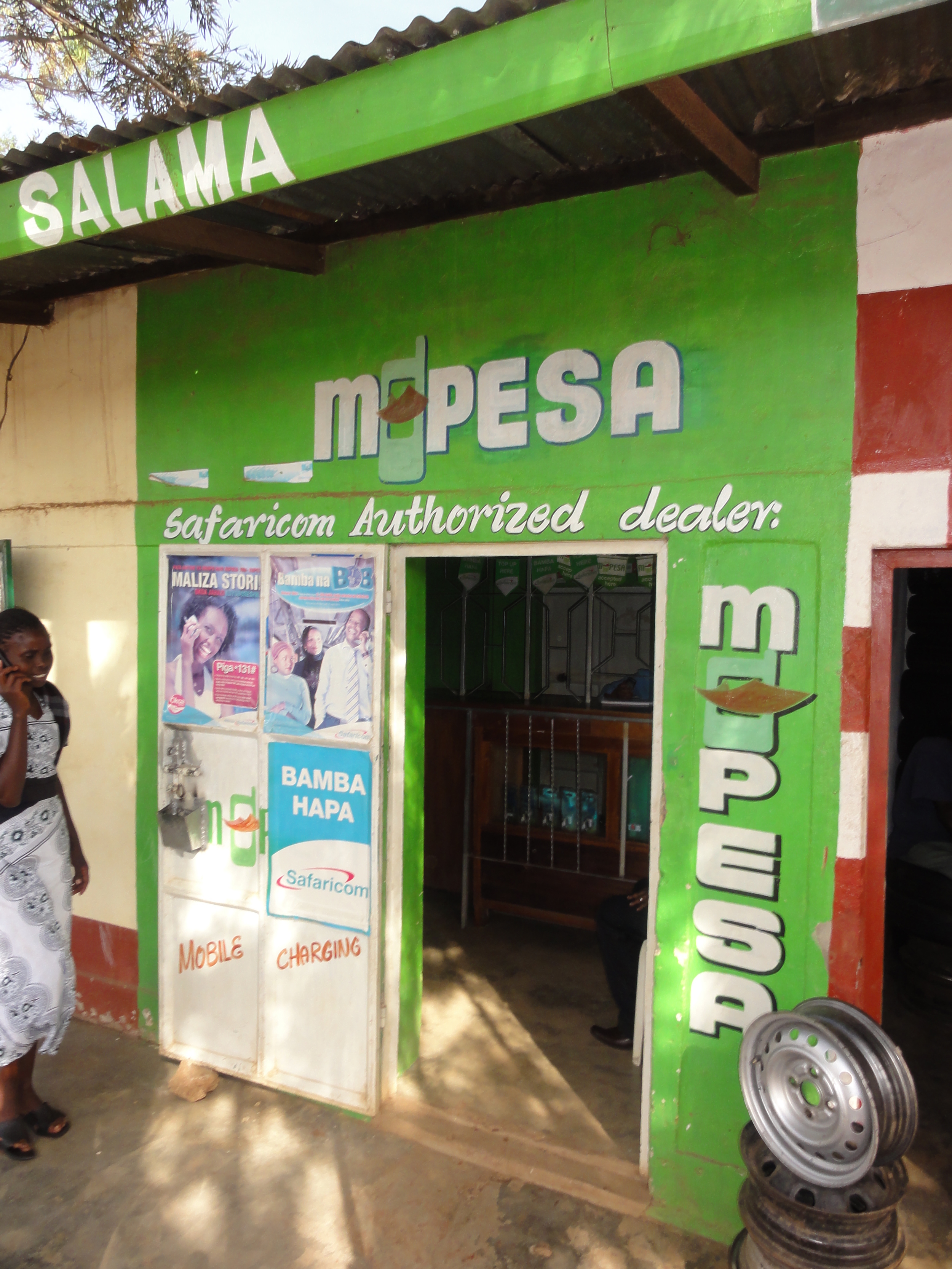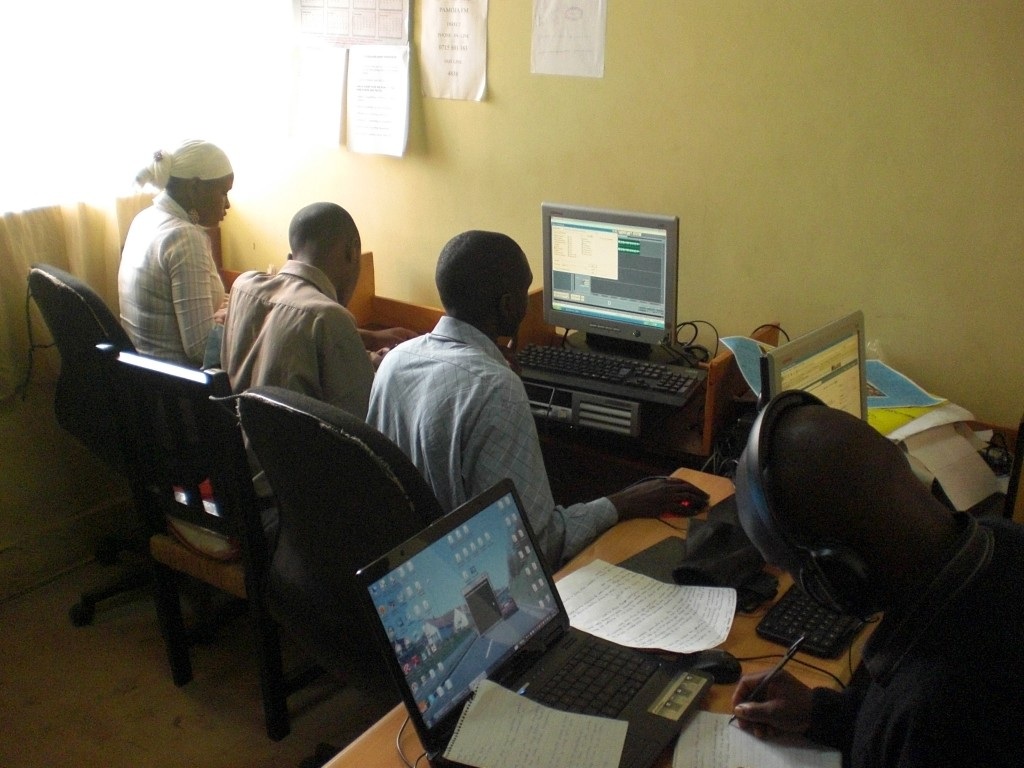 By Sharon Langevin, FrontlineSMS:Credit Project Manager
By Sharon Langevin, FrontlineSMS:Credit Project Manager
Mobile money is spreading quickly across the globe. The ability to transfer funds from a mobile handset has been hailed as the key to extending financial services to the base of the pyramid. While a mobile money account is valuable to an individual for securing savings and easy money transfer, there are many ways that the use of mobile money can create efficiency in the operations of organizations. Through the FrontlineSMS:Credit project, the FrontlineSMS team has been thinking about how to provide a tool that makes it easy for our users to get started using mobile money in their organizations.
FrontlineSMS:Credit is currently preparing for the beta launch of our very first software product, PaymentView, which will be available for public download from early March. PaymentView is an extension to FrontlineSMS that allows the user to send, receive, and manage mobile payments. The software is currently configured for use with M-PESA in Kenya. We are now testing the software with a variety of different organizations, from agribusinesses, to microinsurance providers, to financial services associations. The road from the beginning of FrontlineSMS:Credit to today has been a long one, and not without some setbacks, but we are proud of how far we have come since the project began.
FrontlineSMS:Credit originally started as CreditSMS. The project was instigated by Ben Lyon in 2009, and inspired by the growing potential of mobile technology in Africa, especially mobile money and M-PESA. Ben had the original idea for using FrontlineSMS’s interface as a mobile money management tool, and was able to connect with Josh Nesbit of FrontlineSMS:Medic (now Medic Mobile). When they met, Ben pitched the idea of FrontlineSMS + M-PESA, and Josh said to go for it. Josh provided valuable encouragement for the idea, and Ben started building out the concept under the name CreditSMS. Eventually CreditSMS became a project of FrontlineSMS, called FrontlineSMS:Credit.
In January 2010, Ben met Nathan Wyeth, who would later become the second director of FrontlineSMS:Credit. Nathan was investigating the mobile money sector around the world, and interviewed Ben for a blog post about FrontlineSMS:Credit for NextBillion.net. Soon after, he volunteered to help Ben work on the project. Around the same time, Ben began to develop the very first version of PaymentView with a global network of volunteers. He then applied for, and won, Vodafone’s Wireless Innovation Project competition, which provided the initial funding for PaymentView.
The first pilot of PaymentView took place in Freetown, Sierra Leone, in May 2010 and proved to be a real learning experience. The team quickly gathered that the solution they were offering did not fit the organization they were partnering with. PaymentView allowed the user to both send and receive payments, even though the partner MFI had only asked for the ability to accept loan repayments. In addition, PaymentView linked to a different MIS than the one the partner MFI was using, and the difference between the two was not trivial. The challenges of the pilot helped to inform the further development of our software, our approach to selecting and working with partner organizations, and most importantly, our ability to design appropriate projects.
After the pilot ended, Ben headed to Boulder, CO to attend the very first Unreasonable Institute, an accelerator for social entrepreneurs. He met other talented and driven social innovators and connected with advisors and investors. He worked on FrontlineSMS:Credit all summer, further developing the idea and making plans for future expansion, which led to his Pop!Tech Fellowship in the fall of 2010 and significant press attention for the project.
Through his experience at Unreasonable Institute, Ben made the decision to hand over FrontlineSMS:Credit to Nathan and move on to a new position, as founder of a company called Kopo Kopo, where he is now the Vice President of Business Development. He says he is grateful for his time at FrontlineSMS because it helped to shape his career path and taught him how to lead a successful project.
Nathan took over fully by late fall 2011, and moved the project to Nairobi, Kenya, one of the epicenters of mobile money, where he planned to build a user community before expanding the project internationally. (Side note: Funny enough, Nathan and Ben lived together and worked in the same co-working space, the iHub, for several months during 2011).
Nathan hired new developers and began building the version of PaymentView we’ll soon be releasing. Nathan re-thought the role that PaymentView could play in the Kenyan context and began building the software based on some of the lessons of the original pilot, but strongly tailoring the software for the growing community of potential users in Kenya. By June, the staff began to expand with three summer fellows and me, the new FrontlineSMS:Credit Operations Manager.
Over the next few months, the summer fellows delved into a variety of sectors to learn more about how mobile money could be used, and I worked on securing beta users for the PaymentView software we have been building. We interviewed potential users in agriculture, financial services, and health to find out how mobile payments could increase efficiency and cut costs. We found that the possibilities were endless; from enabling loan repayments to be made remotely, to distributing payments for farmers’ crops without the farmers having to meet at a central point, to paying community health workers’ salaries with mobile money. Mobile money allows organizations to provide better services to their clients and save on operating costs. Some of the savings groups we are working with have reduced travel time for repayments from a full day to under an hour, and cut the cost of the transaction in half.
Fast forward a few months, and we’re ready to release the PaymentView beta into the world for live testing. The FrontlineSMS:Credit team is now moving full steam ahead, building on the foundation that Nathan built over the last year (Nathan has since moved on, and I’ve taken over as Project Manager). We are hard at work expanding our user base and adding USSD support to PaymentView so that a developer anywhere will be able to build an integration into any mobile money system in the world (currently we can only support SMS and STK-based systems).
We are currently seeking testers in Kenya who are willing to use the software and provide feedback to us. If you are interested in helping us to test the software, please contact the FrontlineSMS:Credit team for more information. If you are based outside of Kenya and want to learn more or be notified when we the international version is ready for testing, please visit our website and join our mailing list to stay updated.






















 Today, with over 500 million mobile subscribers across Africa alone, and more people around the world owning a phone than not, mobile phones seem to be everywhere,” points out FrontlineSMS founder Ken Banks in the opening post of our National Geographic
Today, with over 500 million mobile subscribers across Africa alone, and more people around the world owning a phone than not, mobile phones seem to be everywhere,” points out FrontlineSMS founder Ken Banks in the opening post of our National Geographic 



